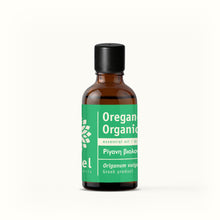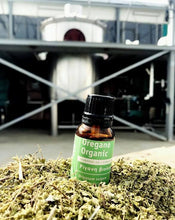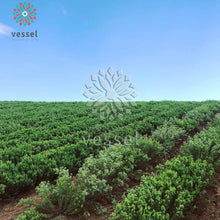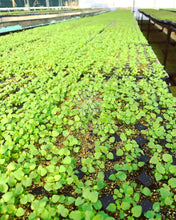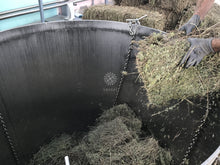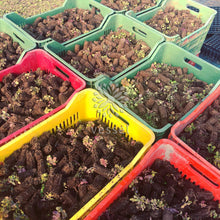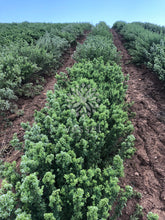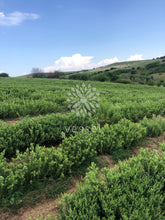Greek Oregano Organic Essential Oil - Carvacrol Content 82,1%
Regular price
€9.80
Sale
Greek Oregano Organic Essential Oil
Batch: Ε1001823



"Once you try THIS oregano, you will feel the wrath of Greek gods inside yourself as it is the strongest natural and pure oregano essential oil you can find!"
V
Other common names: European oregano, common marjoram, wild marjoram, others
Botanical name: Origanum vulgare subsp. hirtum
Botanical family: Lamiaceae (Labiatae)
Method of extraction: Steam distillation
Plant part used to extract the oil: dried aerial parts of flowering plant
Cultivation method: organic
Historical notes:
The word oregano comes from Greek ‘ore – oros’ meaning ‘mountain’ and ‘gano’ or ‘ganos’ which means ‘shinning surface’ or ‘joy’. So oregano is the shinning surface or ‘joy of the mountains’.
According to Greek mythology, the spicy, vibrant scent of oregano was created by Aphrodite - the goddess of beauty - as a symbol of happiness.
Biochemical group: phenol
Main chemical compounds: carvacrol (83.6%), thymol, p-cymene, others
Colour: clear
Consistency: thin
Aroma strength: very strong
Perfumery note: middle
Aroma: strong, sharp, herbaceous, medicinal, camphoraceaous, spicy, with phenolic dry out.
Traditional aromatherapy uses:
- Traditionally in aromatherapy treatments oregano essential oil is associated with the following therapeutic properties: analgesic, antibacterial, antifungal, anti-infectious, antiseptic, antiviral, bactericidal, carminative, emmenagogue, energizing, expectorant, fungicidal, immune support, rubefacient, warming
- Qualified aromatherapists may use oregano essential oil for common complaints such as:
- respiratory conditions: acute respiratory infections
- How we use it:
As oregano essential oil is a skin and mucous membrane irritant it should only be used at a very low dilution. Please see safety notes below.
- For respiratory infections: inhale on its own (1 drop from a tissue) or blended depending on the severity and type of the condition; we like it blended with some Lemon essential oil e.g. 1 drop of oregano and 5 drops of lemon diffused in a sick room or inhaled from a personal inhaler.
Please, also see our How to Use Essential Oils Safely page for more information.
Safety considerations:
Robert Tisserand and Rodney Young warn that oregano essential oil is contraindicated during pregnancy and breastfeeding and that it may be embryotoxic.
They indicate a moderate risk for mucous membrane irritation and skin irritation.
Furthermore, they warn that the oil may inhibit blood clotting and pose a drug interaction hazard.
Tisserand and Young recommend a maximum dermal use level of 1.1%. They advise not to use topically on children age 2 or younger or for those with hypersensitive/diseased/damaged skin.
Reading Tis
serand and Young's full oils safety profile is recommended. [Robert Tisserand and Rodney Young, Essential Oil Safety (Second Edition. United Kingdom: Churchill Livingstone Elsevier, 2014), 376.]
Please, also see our How to Use Essential Oils Safely page for more information.
Research and studies:
- Antibacterial effect of oregano essential oil alone and in combination with antibiotics against extended-spectrum β-lactamase-producing Escherichia coli
https://academic.oup.com/femspd/article/53/2/190/495620
- Effects of oregano, carvacrol and thymol on Staphylococcus aureus and Staphylococcus epidermidis biofilms
- In vitro activity of origanum vulgare essential oil against candida species
https://www.ncbi.nlm.nih.gov/pmc/articles/PMC3768597/
Margaret Pawlaczyk-Karlinski MSc. (Hons.), Cert. Ed., M.I.F.A., NHS reg.









